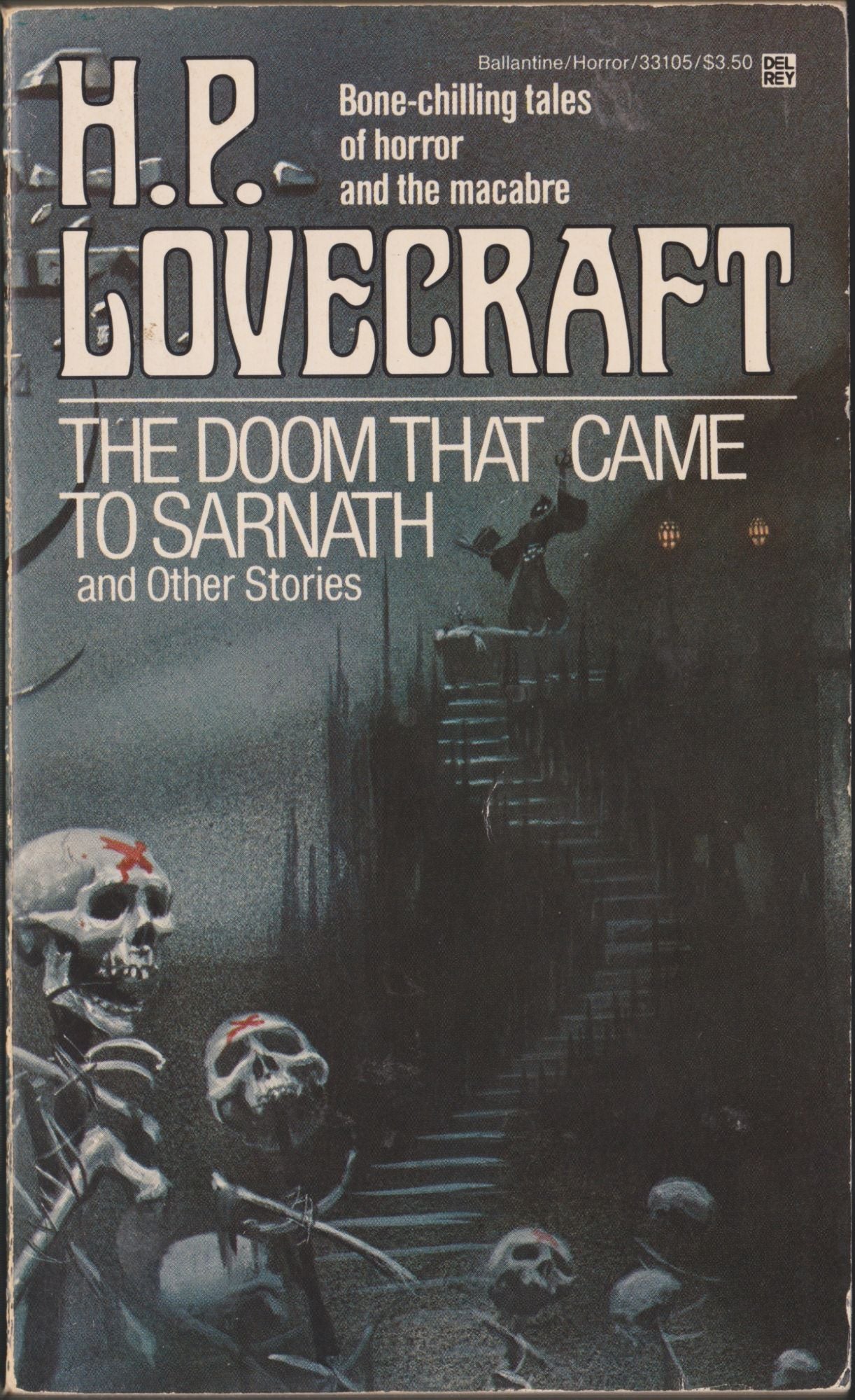2019: Writing, Reading, Viewing
 |
| Photo by Jon Tyson via Unsplash |
In an attempt to remember some of what I wrote, read, and watched this year, here are reflections on 2019 as it enters the past...
Writing
I had only a handful of publications this year, mostly because a lot of energy was eaten by work on my book Modernist Crisis and the Pedagogy of Form, which will be published next month by Bloomsbury, and by a few other items that are all scheduled for publication next year. I did manage to publish some fiction, though, for the first time in a while, and that was heartening, especially as the two stories appeared with publications I particularly respect. Here's the list:
- "Toxic Masculinity at the End of the World: On David R. Bunch's Moderan", The Millions (January)
- Review of The Undying by Ann Boyer and Screen Tests by Kate Zambreno, Rain Taxi (Fall)
- "After the End of the End of the World", Outlook Springs issue 6
- "A Liberation", Conjunctions issue 73
Reading
Because both my dissertation and the book I expanded/adapted from it were now complete, 2019 became the first year in a long time that I had free choice in reading. I mostly avoided the subjects of the book and dissertation; the biggest practical effect was that though I got a copy of Coetzee's The Death of Jesus, I have not even opened it yet, despite being quite curious to see how Coetzee has ended his beguiling, ethereal trilogy. (For my thoughts on first reading The Childhood of Jesus, see this post; for The Schooldays of Jesus, this post.) Not that I ended up with a lot of spare time for reading, given that I now have a (very) full-time job. But still, it felt like the freest reading year in memory. So free that I barely kept track of what I read, so these notes will be all over the place.
I seem to have settled into a pattern where in the late spring or early summer, I plunge wholeheartedly into multiple works by one writer. Last year, it was James Purdy. This year, it was Sylvia Townsend Warner. I didn't write much about either writer (a single post in each case: on Purdy's Complete Short Stories and Warner's novel The Flint Anchor), but this seems to be necessary for my enjoyment: I float from work to work without any need for analysis or notice. With Purdy, I read most of the novels; with Warner, as I had read a couple novels already, I focused on the short stories and letters, plus The Flint Anchor, since I was curious how it compared to her earlier work, and because it is roughly contemporaneous with some of my favorites of Warner's short fiction. Thanks to the efforts of the NYRB Classics, Faber & Faber, and Handheld Press, most of Warner's books are in print, particularly in the UK. (Readers outside the UK: Get thee to the Book Depository!) But it seems to me that Warner is not as appreciated as she should be for her short fiction, particularly the collections that are not Kingdoms of Elfin (a marvelous book; but if any of her stories get mentioned these days, it tends to be those). Seek out Winter in the Air, a book that gives a fine overview of Warner's many strengths. Or, if you have a New Yorker subscription, play around in the archives — she published more fiction there than almost anybody, perhaps even more than John Updike, thanks to the support of her longtime editor William Maxwell. She was a remarkably idiosyncratic writer to appear so frequently in the pages of The New Yorker for so long, and it's clear that it was Maxwell who helped other editors understand the value of her work. (Seek out her published correspondence with Maxwell, too.) Delving into Warner's stories this summer was truly one of the most delightful and enlightening reading experiences of my life.
Speaking of John Updike, as I did in passing above, one of my favorite pieces of nonfiction this year was Patricia Lockwood's hilarious and scathing and insightful and actually pretty generous London Review of Books essay about reading Updike. "He is remembered as a libertine when he might be remembered as a reactionary conservative or even as a Christian – and the libertines of literature have a habit of being allowed everything. Colm Tóibín, in a 2009 interview with Bookslut, expressed a belief that Updike’s homophobia would eventually eat into his critical reputation. ... The same could be said of his racism or misogyny or his burning need to commit to print lines like ‘Horny, Jews are.’ But nothing of the sort has really happened. This may be because, beyond his early work, he is not actually being read."
I read books for work, or books related to my day job, which means I read books about higher education, pedagogy, interdisciplinarity, etc. The ones that have stuck with me are: Why They Can't Write by John Warner, Generous Thinking by Kathleen Fitzpatrick, How Humans Learn by Joshua Eyler, and The Great Mistake: How We Wrecked Public Universities and How We Can Fix Them by Christopher Newfield. All wonderful books, especially for anyone in education.
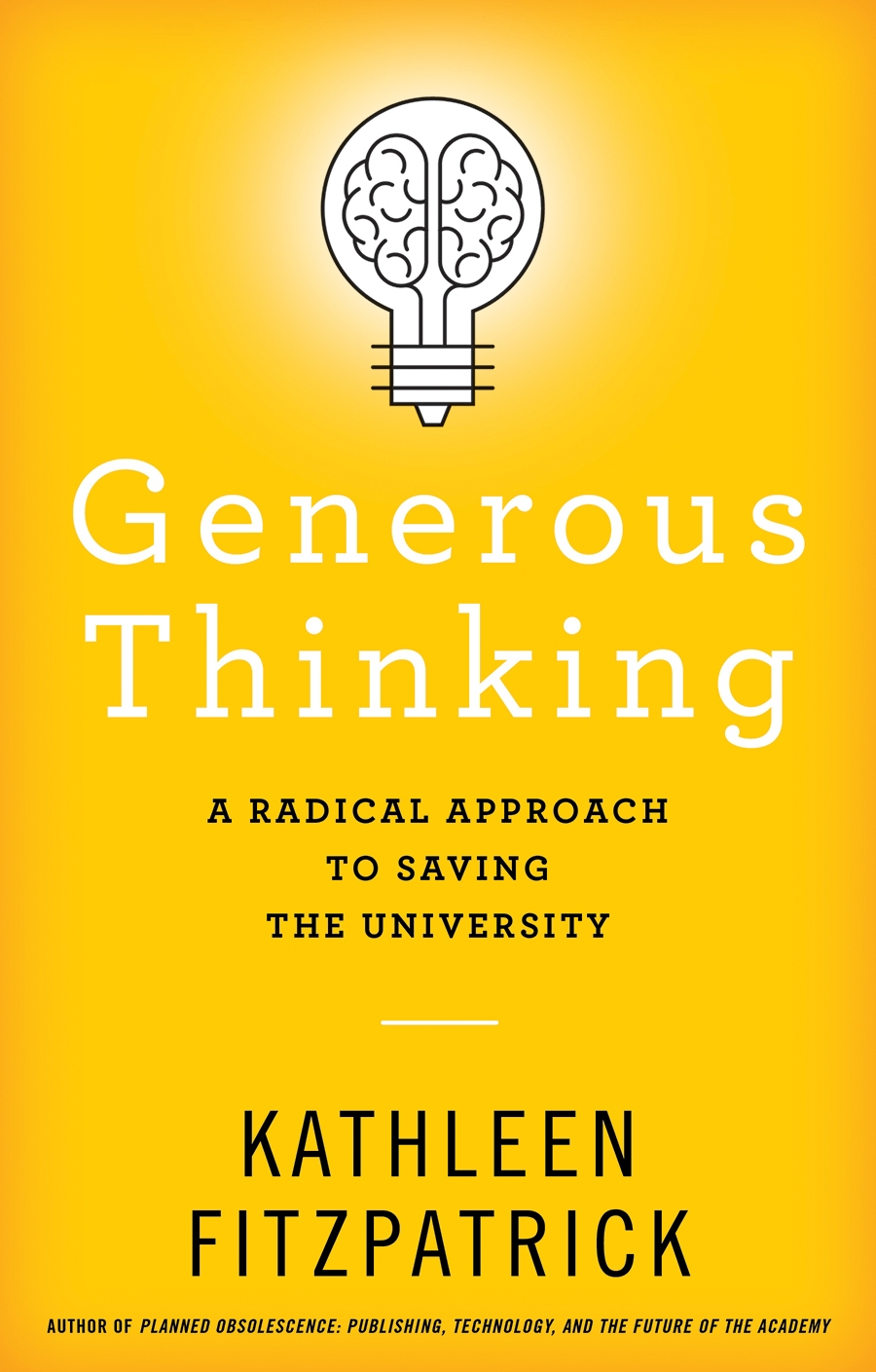
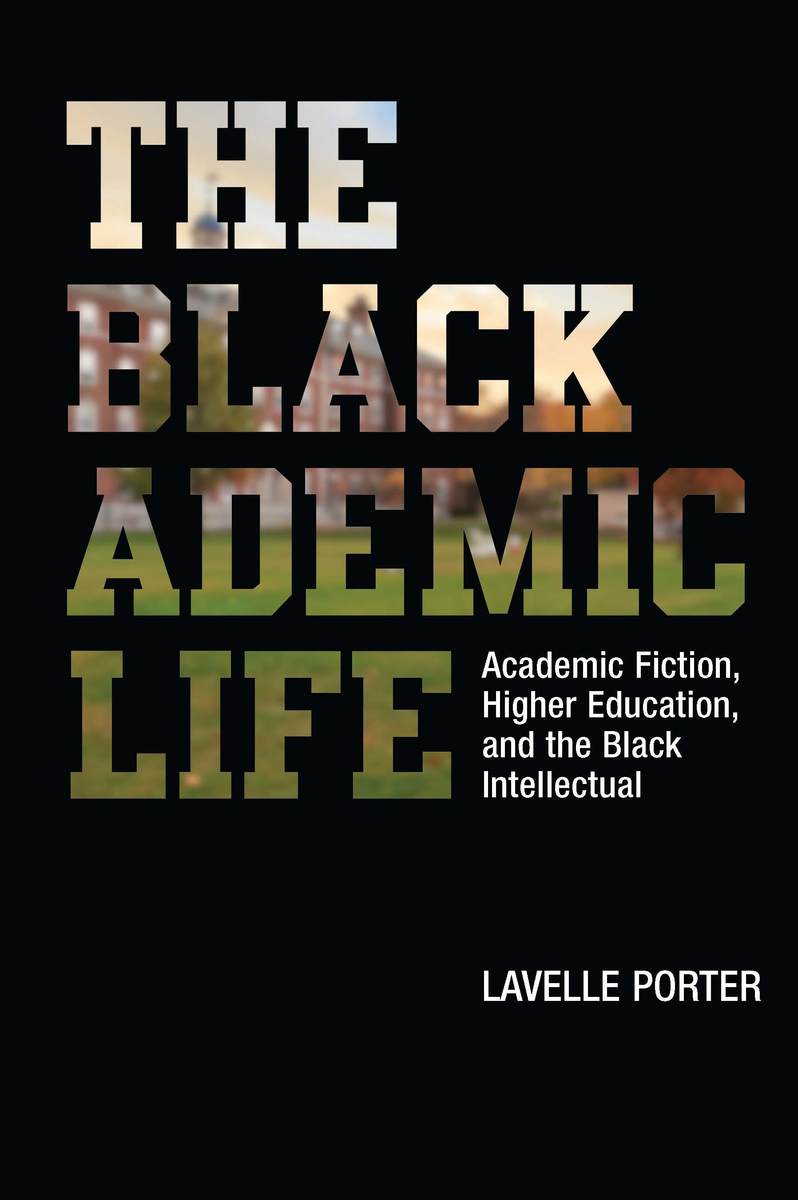

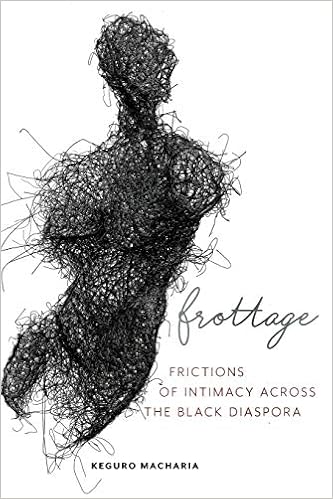
I read new academic(ish) books by friends, including The Blackademic Life: Academic Fiction, Higher Education, and the Black Intellectual by Lavelle Porter and Frottage: Frictions of Intimacy across the Black Diaspora by Keguro Macharia. I think of those two in particular because actually I'm still reading them. They're great, but they both came out this fall, so I haven't had a lot of time yet to do much more than read around in them. Both are doing interesting things not only with their subject matter but with the forms and assumptions of academic writing. Well worth checking out, even if — maybe especially if — you don't think academic writing has a lot to offer. These are interesting, innovative works of writing, full stop.
(I read around in lots of other academic books, but don't feel compelled to chronicle that here. I took advantage of a huge sale that Palgrave had on their books and got a bunch of things I never thought I'd be able to afford to own, but I've only begun to dig into those. I also took a chance on some I was previously unfamiliar with, including one excellent book I'm almost finished with, Steve Jones's Torture Porn: Popular Horror After Saw. It's a thoughtful, smart, and remarkably comprehensive defense of a type of film not a lot of people are willing to defend. I expect to write more about it later.)
I read novels by friends, novels that gave me great pleasure because not only were they by friends but they were incredibly satisfying, powerful reading experiences: The Mere Wife by Maria Headley and Dead Astronauts by Jeff VanderMeer (about which more soon, I hope). Both were published by FSG's imprint MCD. Clearly, editor Sean McDonald and I have somewhat overlapping taste in contemporary fiction.
I read (or reread) most of Patricia Highsmith's Ripley novels — I didn't quite get to the final one, Ripley Under Water, before having to run off and read other things, then forgetting to return. Or did I forget? Maybe I just didn't want to be done with Tom Ripley, or maybe I didn't want to subject myself to a whimper of an end to a series I, frankly, adore. By most accounts, this final book is pretty weak, and Highsmith was well past her prime. I love the other books, though, unabashedly; yes, even The Boy Who Followed Ripley, that barmy late novel (see Alexander Chee's paean to it). Others of Highsmith's novels are better constructed than some of the individual pieces of the Ripliad, more compelling, more powerful — but there's something singular to the Ripley novels, something both terrifying and alluring, like Ripley himself.
In a recent Studio 360 piece about the Ripley novels, Hanya Yanagihara says, "I've often wondered if a truly moral person could read these books and enjoy them. And I think the answer is probably no." This seems true to me. I tend to prefer books that truly moral people could not enjoy.
Once school started again in late August, I didn't have much time for reading fiction. Aside from Dead Astronauts, the only other recent novel I read was Trust Exercise by Susan Choi, which won the National Book Award (Jeff VanderMeer was one of the judges, and though he praised the book to me, I'd bought it immediately after reading Fiona Maazel's review in Bookforum — from the review, it sounded like a book with a bunch of tendencies I'm a total sucker for; and, indeed, it was). It's a wonderfully-written book, both clever and intelligent, and gripping. The ending has been controversial, and I'm not sure I don't think it's something of a cop-out, but I admire the confidence of it. (Erin Schwartz's review for The Nation offers an interpretation close to my own, but that essay should be saved until after you've read the book, as it gives every surprise away, and the surprises are part of the purpose of the novel, as I understand it.)
One of the big publishing events of the year, in my opinion, was the release of k-punk: The Collected and Unpublished Writings of Mark Fisher (2004-2016). (Actually, it was published at the end of 2018, but I didn't get a copy until early 2019, so I'm calling it this year, persnicketty fetishizers of trivial accuracy be damned!) One day, I hope to impress the youths by saying, truthfully, that I read Fisher's k-punk blog back when it was new. I did indeed read it back then, but I mostly didn't understand what Fisher was writing about, because I didn't yet have a frame of reference for his eclectic interests. I read his Capitalist Realism soon after it came out, too, and found it a useful way of thinking about things, but also a bit sketchy. I felt that with his subsequent books, as well, even as I kept coming back to them and finding their ideas influencing my own. The new collection is not a slim volume like the books Fisher himself published — it's 800+ pages of blog posts and essays. Ideas have space to develop and echo across the pages, even as those pages represent more than a decade of writing and thinking. It's a rewarding book to dip into, but its greatest virtues appear once you get caught up in it, experiencing the bounce of Fisher's mind through his words.
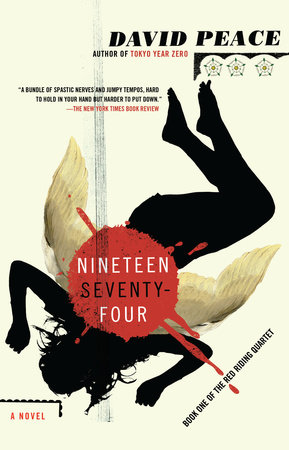

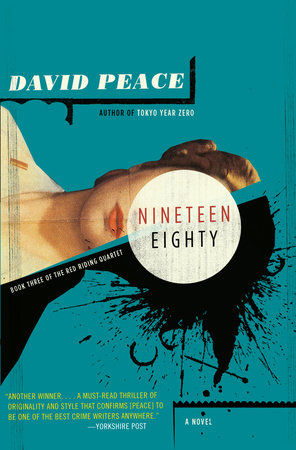
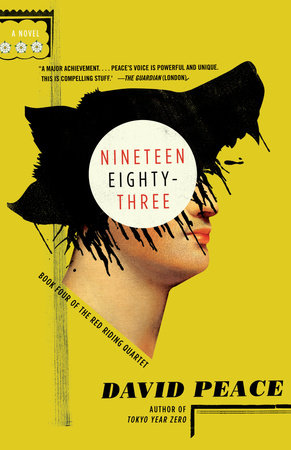
There's a lot I wish Fisher had had time to write about in more depth. For instance, the books of David Peace, about which he wrote passionately and insightfully, but not at length. Inspired by Fisher, I read all four of David Peace's Red Riding novels. I'd previously read the first book, Nineteen Seventy-Four, after watching the great trilogy of films based on the novels a few years ago, but I found the book then monotonous and smothering. The films had led me to want something ... else. Now, returning to them with the films a more distant memory, I still found parts of the first book a bit of a slog, but something also lodged itself in my imagination, and I continued on. That first book is good, but it doesn't feel to me that Peace really found his way into the material until the second book, and then he kept getting a better handle on it, until the final book is something like a response to the first. It's an extraordinary sequence, and once I was in, I was really in — I didn't want to read anything else, and yet I also had to slow myself down, because somewhere around the end of the second book, I started having nightmares about it. This was a strange and actually exciting new experience. I don't usually have nightmares inspired by books or movies. But these books dug deep into me. By the final book, I was almost afraid to open it, but I also couldn't resist. The pages of the later books look like poetry, as Peace uses prose as much for rhythm as sense, and sense is not always (or even often) apparent. It's pure pulp modernism, and more deeply disturbing than any officially Modernist text I know.
The biggest surprise in my reading life this year was that I returned, with new fascination, to two writers whose work I have been reading for most of my life but which I have often felt annoyed by, even dismissive of: J.R.R. Tolkien and H.P. Lovecraft. I didn't even tell anybody I was reading them much because ... egads.
Tolkien I picked up because I was reading some of Ursula Le Guin's interviews and essays, and I was interested in Le Guin's appreciation of Tolkien, particularly the rhythms of his sentences. I have enjoyed The Hobbit since I read it as a child, but I have never really thought of it as much more than a book I am fond of because I have particularly strong childhood memories of reading it with my mother. And it's a lovely story, a truly comforting book, and not insipidly so. But the Lord of the Rings, and the whole made up mythology, with its monarchies and Manicheanism and Anglophilia, long put me off, even as it remained sharp in my mind, especially with the release of Peter Jackson's original trilogy of films, which first showed me what people so loved in the books — I had never finished reading them, or even made much progress in them, before the movies, because I found them almost impenetrable, and definitely a cure for insomnia. Between films one and two, I did read them, though, because I wanted to find out what happened, and the films gave me enough of a sense of the story to be able to journey into the books. I didn't appreciate them for anything much more than plot, then, though.
Le Guin's comments opened something up for me, and this year, I returned to the trilogy with greater appreciation for Tolkien as a writer. I became especially interested in his writing process, and read his letters and some books about him. It struck me that someone should write a comparative study of him and William Faulkner, two men deeply affected by landscape and war, obsessed with history and language, who created richly imagined worlds across multiple books. Though I have discovered a new appreciation of Tolkien, and Faulkner has long been my favorite American novelist, I do not have enough interest in the project to tackle it myself — but I would gladly read it, should somebody else want to write such a study...
And then there's Lovecraft. Again, I've been reading him since childhood — like many people of my generation, Michael Whelan's covers for the Del Rey paperbacks captured my imagination at an impressionable age, and I bought those books whenever I had a bit of money. But I was disappointed in many of the stories. I stared at the cover for The Doom that Came to Sarnath endlessly, and loved the title (so evocative!), but the story was ... rather less than I expected. (Of the poetry, we will not speak.) The whole book is a disappointment except for "The Festival", which remains one of my favorites of Lovecraft's fictions. Though I collected the other Del Rey paperbacks for their covers, I was always wary of Lovecraft because so few of the stories in those books ever lived up to the promise of Whelan's art. Even before I recognized Lovecraft's fanatical bigotry, I was wondering what all the fuss was about. So much of what I read seemed either tedious or silly to me. I returned to his writing over the years, and even bought others of his books, hoping to find more of a way in, and here and there I did — I remember liking "The Colour Out of Space", "Cool Air", and "The Rats in the Walls" when I was in college and paging through the old Del Rey books and others I had, thinking about whether to give them away (I kept most of them). Over the years after college, I would return to Lovecraft now and then after reading praise from various writers and friends I respected. I enjoyed some Lovecraft pastiches, parodies, and critical fictions, particularly the ones by and about the types of people who most repulsed Lovecraft (which is to say, the vast majority of people on the planet, if not in Lovecrafty circles). Eric Schaller and I put together a Lovecraft-themed issue of The Revelator (though the interest in Lovecraft was almost entirely Eric's). Sometimes, I even felt a need to study some of Lovecraft's life and ideas to be able to talk about books I did enjoy, like Paul La Farge's magnificent The Night Ocean. But I never really got it. And there was the racism, anti-Semitism, misogyny, xenophobia, homophobia, etc. which are not just side elements in Lovecraft's work, but in important ways utterly constitutive of it.
Reading The Night Ocean a couple years ago began my wondering about some things Lovecrafty, and I casually started revisiting him now and then. Small doses. (Also, laughter. Somebody somewhere said it's good to read Lovecraft as camp, and I must confess I do that more than not.) Some circumstances this year that brought me back to him more fully: I found a set of the old 5-volume Arkham House Selected Letters for a ridiculously low price, and thought, "Even if I forever hate Lovecraft, I could always sell these books for a lot more than this...", so I bought the set and started reading around in them and found myself intrigued, for reasons I can't entirely explain, because Lovecraft in the letters is in many ways even worse than I ever imagined him — not only racist, misogynistic, anti-Semitic, eugenicist, homophobic, you name it — but also flat-out insufferable! And yet... What comes through in the letters is Lovecraft's humanity. A real sense of a person, a person who I don't think I would ever have wanted to meet, but who nonetheless is fascinating as a character. (Patricia Highsmith, herself quite viciously bigotted and definitely someone I never would have wanted to know, is similarly fascinating.) I suppose it's the old actor in me. Over-the-top characters are compelling. Reading through the Selected Letters, I began to understand something the (late; RIP) Willum Pugmire said in an interview with Nick Mamatas: "it was reading the Arkham House Selected Letters volumes that made me a Lovecraftian to the core." I am pretty certain I will never be a Lovecraftian to the core, but I feel a bit more sympathetic now to people who are.
Around the time I was reading the Selected Letters, I saw on the shelves of the library where I work the recent New Annotated H.P. Lovecraft edited by Leslie Klinger, whose annotated volumes of Sherlock Holmes I have appreciated as much for their art and design as for the annotations (I've never been able to get over the tendency of Sherlockians to annotate as if Holmes and Watson were historical figures. It's just terminally grating). I decided to sign the book out of the library, and soon enough found myself engrossed in a way I never had been before, the effect a result of both the new interest (going back to The Night Ocean, solidified with the Selected Letters), as well as an aesthetic appreciation for Klinger's book. It was fun to read. It also made no attempt to pave over the worst of Lovecraft's beliefs and how they shape his conception of the universe; indeed, the annotations do a pretty good job of contextualizing them, so we can see where Lovecraft's beliefs are typical for a white guy of his place and era, and where, so often, they are much worse. Then I learned of the new second volume, with an introduction by Victor LaValle — and I thought, oh, I need to read that. If anything, it's an even more beautiful book (and easier to read because it's shorter, so doesn't weigh as much). LaValle's intro is smart and pulls no punches. And it even mentions my beloved Del Rey paperbacks.
 |
| Lords of Salem (2013, dir. Rob Zombie) |
(Aside)
Thinking about Lovecraft, about horror fiction, about prejudice and philosophy, I began to conceive of a new book project, one about the virtues of vileness, aspects of the abject, and the ways we use cultural items like books and movies in our lives, especially those of us who don't fit completely into the dominant culture, who have in some way or another been marginalized, maybe even brutalized.
I thought about this more fully as I discovered this fall the writings of Willow Catelyn Maclay, who writes better than anyone else I'm familiar with about what we can get from some of the roughest and seemingly most awful horror movies. She first came to my attention with her piece for MUBI this year on Rob Zombie — anybody who appreciates Zombie intelligently is someone I'm interested in, but I'll really jump onto the bandwagon of anyone who will declare: "horror movies are in a conservative rut this decade. The term 'elevated horror' has been bandied about for art-house directors like Robert Eggers (The Witch) and Ari Aster (Hereditary), who make bloated films that reach for the likes of Stanley Kubrick and Roman Polanski and land somewhere in the vein of slick student filmmaking that renders all of the psychological elements of their craft obvious and overwrought. If these films do attempt to create any scary or chilling elements they’re usually foreshadowed with the subtlety of someone sneaking behind you and firing off an air-horn."
After reading the piece on Zombie, I followed her on Twitter, looked her up on Letterboxd, and soon enough subscribed to her Patreon, as I was very curious about her 100 favorite horror films countdown (totally worth the subscription).
The book project is highly nascent at the moment, a bunch of unconnected ideas and notes, so I don't want to say more about it. But working my way toward it has affected a lot of the last few months of my life in terms of what I'm writing, thinking about, reading, and, especially, watching.
Viewing
I used Letterboxd more this year to chronicle my movie viewing, but my use of it is too sporadic to be completist, and even if I were better at noting what I've watched, I haven't used it at all for TV, which makes up probably 1/3 (and sometimes 1/2) of what I watch. In the second half of the year, I decided to use Letterboxd primarily to keep track of the many horror movies I was watching in anticipation of writing this book-project-thing. I was spotty in my use of it in the first half of the year, better in the second half, but the only thing I've managed to almost fully track is the horror movies I've been making my way through.
2019 has felt to me like a weak year for movies. I haven't seen all of the films getting a lot of attention, but I've seen enough of the movies on various top-10/20/50/100 lists to know that a lot of what people consider the best of the year are movies I haven't been super excited about, even if I more or less appreciated them to some extent. Maybe it's me. (Will I subject myself to The Irishman? Maybe. I don't care for Scorsese's movies generally, so I don't expect to enjoy a super long pile of Ultra Scorsese, but who knows, maybe I'll give it a shot, just to see.)
Of the 2019 movies I've seen so far, my favorites have been 3 from Hell, The Last Black Man in San Francisco, Parasite, and Atlantics, with Atlantics being my definite favorite.
In other years, those films might all be in my top 10 or 20, but I'm not sure any other than Atlantics would be in my top 5. They were good movies, but they all lack a certain richness of vision that films from other years possess (sometimes by the same directors, as in the case of 3 from Hell and Parasite). Parasite, for instance, is at the top of a lot of Best of the Year lists, and I enjoyed it, but Bong's movies since Mother have been getting more and more simplistic and schematic (even dogmatic) in their premises, and Parasite, entertaining as it is, ultimately left me feeling kind of like I'd been hit on the head with a copy of Jacobin. Bong now more easily indulges in the preaching that's threatened to engulf his movies for a while. Up through Snowpiercer, Bong's visual style could make up for his schematism (and Snowpiercer is certainly his most schematic movie), but the conversations that movie inspired seem to have unleashed his inner moralist. (Okja, the film between Snowpiercer and Parasite, was a mess that veered from strident propagandizing to goopy sentimentality so often that it felt to me like a drunken parody of Studio Ghibli movies.) Nonetheless, I like Bong's films a lot, and I still feel like he's got another masterpiece in him; Parasite just wasn't quite it, for me.
The best recent movie I saw this year was from last year: Burning, a real masterpiece that I expect to return to many times. I haven't seen anything released this year that comes close to its beauty, mystery, and power.
 |
| Burning (2018, dir. Chang-dong Lee) |
As for TV, the standout for me this year was season 2 of Dark on Netflix, just because I was looking forward to it so much and it didn't disappoint, as it easily could have. The first season was astounding, and I knew the second season could not be quite as good, because there's no way to replicate the sheer thrill of how Dark develops in its first season, no way to go back to knowing nothing about the situations or characters. And that proved true. But season 2 has some neat tricks up its sleeve, and it does a nice job of adding depth to what we already knew. I've never seen anything that so powerfully expresses a melancholy sense of fate, of being trapped in a system that you not only can't escape but can't really understand, either.
When They See Us is probably the best TV I watched all year. It should win every award. I found it incredibly difficult to watch, however, even though I'm familiar with the story of the Central Park 5. The filmmaking was so intense that I could hardly bear it. In many ways, it's the best new dramatic work I saw all year, TV or movie. But I'm not sure I could ever watch it again.
I adored the previous seasons of Shetland, and Season 5 was at least as good as Season 4. It's remarkable for a show to stay so consistently strong season after season, and I certainly fear that Shetland may try to shake things up, escape formulas, and turn into drivel, but for now it remains both wonderfully moody and humane.
I liked the second season of The OA a lot more than the first, and it's too bad it got cancelled, because I think they were beginning to really find their way with the show.
At the end of the year, I splurged on a month's subscription to HBO, mostly because I wanted to see Watchmen and His Dark Materials. I thought Watchmen did some neat stuff, but the second half of the series in particular disappointed me, focusing far too much on Dr. Manhattan and becoming, at heart, a pretty routine superhero story. The creators had plenty of interesting ideas, but they weren't able to bring coherence to those ideas, and so the material inevitably sank into convention. By the end I was more exasperated than entertained. Alan Moore can be just as ragged and incoherent in his multiplicity of ideas — the original book of Watchmen is overwhelming in its muchness — but he's so odd and iconoclastic that convention never gets the better of him. Maybe the makers of the HBO Watchmen ought to try practicing witchcraft or something. (Update 12/31/19: For more on Watchmen, read this essay by Aaron Bady: "Dr. Manhattan is a Cop: Watchmen and Frantz Fanon".)
His Dark Materials makes no pretense of being subversive or unconventional in its approach or structure, and is all the better for it. The first few episodes are uneven, but around the fourth episode it gains significant energy, and from there the show keeps getting better. The final episode offers lots of pleasures, chief among them gorgeous lighting — there is a richness and variety of color to this episode that is rare in tv and movies these days. One of the problems the show struggled with in the beginning (aside from World's Worst Director Tom Hooper being in charge of episodes one and two) was that it didn't seem to have enough material for the number of episodes they planned, so not only does it bring in material from the second book in the trilogy, but it drags its feet, building whole scenes from moments that are only a sentence or two in The Golden Compass. Sometimes this works well — I think Lyra learning about her parentage is vastly more dramatic and affecting in the show than in the book — but just as often it feels flatfooted, especially all the scenes with the Magisterium. The later episodes are tighter, or at least better paced. This is not an especially innovative series (except perhaps in some of its digital animation — the bears look magnificent), but that's fine. It's a smart illustration/dramatization of the novels: very well cast, well shot, well designed, and, once Tom Hooper goes away, well directed.
And so 2019 comes to an end, drawing the decade down with it. May we all have good years ahead. If you are feeling particularly nostalgic, here's what I wrote in February 2010 about the decade that had just ended then. I may do the same for this decade if I'm feeling particularly ambitious and/or bored. We shall see. Until then...
 |


